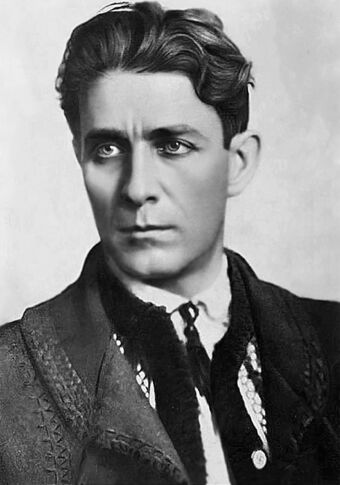Corneliu Zelea Codreanu: Citáty v angličtine
“The young man who joins a political party is a traitor to his generation and to his race.”
For My Legionaries: The Iron Guard (1936), Politics
For My Legionaries: The Iron Guard (1936), Nation and Culture
For My Legionaries: The Iron Guard (1936), Nation and Culture
For My Legionaries: The Iron Guard (1936), Religion
For My Legionaries: The Iron Guard (1936), Nation and Culture
For My Legionaries: The Iron Guard (1936), Politics
“Wherever the Legionary’s hand and soul show up, a garden appears.”
For My Legionaries: The Iron Guard (1936), The Legion
For My Legionaries: The Iron Guard (1936), Politics
For My Legionaries: The Iron Guard (1936), Politics
For My Legionaries: The Iron Guard (1936), Politics
For My Legionaries: The Iron Guard (1936), Politics
For My Legionaries: The Iron Guard (1936), Politics
For My Legionaries: The Iron Guard (1936), Nation and Culture
For My Legionaries: The Iron Guard (1936), Nation and Culture
For My Legionaries: The Iron Guard (1936), Religion
For My Legionaries: The Iron Guard (1936), Jewish Problem
For My Legionaries: The Iron Guard (1936), Nation and Culture
For My Legionaries: The Iron Guard (1936), Nation and Culture
For My Legionaries: The Iron Guard (1936), Politics
For My Legionaries: The Iron Guard (1936), Religion
For My Legionaries: The Iron Guard (1936), Jewish Problem
For My Legionaries: The Iron Guard (1936), Politics
For My Legionaries: The Iron Guard (1936), Jewish Problem
For My Legionaries: The Iron Guard (1936), The Legion
The Nest Leader's Manual (1933)
"I await the resurrection of my Fatherland and the destruction of the hordes of traitors," etc.
For My Legionaries: The Iron Guard (1936), The Legion
For My Legionaries: The Iron Guard (1936), Jewish Problem
For My Legionaries: The Iron Guard (1936), Jewish Problem
